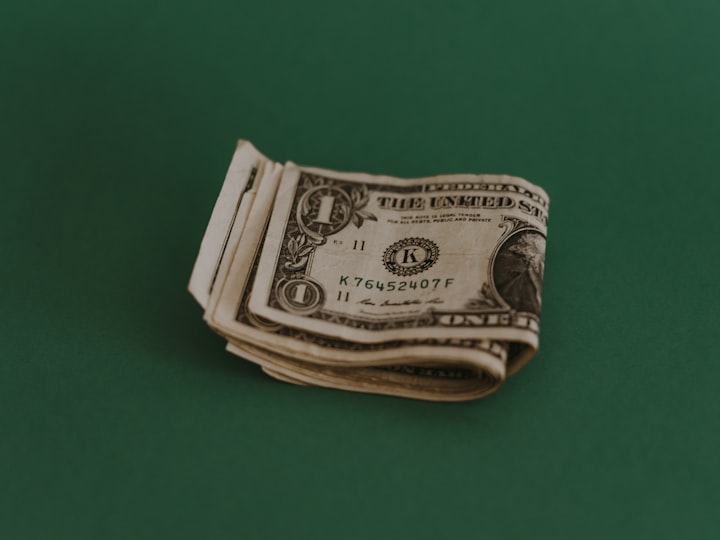Channel Your C-19 Anxiety Into Your Money
This too shall pass, but until then it’s going to suck.

This article is for information purposes only, and are my own opinions and views. I’m not a finance professional, just a money nerd.
If I had a dollar for every time I’ve heard a commercial say “In these challenging times...”, times probably wouldn’t feel so challenging.
While said with sincerity, the goal is to get you to spend your money on something that likely won’t help you in these challenging times.
Instead what you need is an emergency fund; that is savings, usually equal to 3–6 months of your expenses, set aside just in case.
Long ago I learned how important being financially stable was to my mental and physical health, and feeling of security. And with a global pandemic raging, and a seemingly inevitable economic recession around the corner, I’ve been directing my anxious energy into my finances.
I’ve listed below the steps I’ve taken to help build my emergency fund, and streamline my spending.
This isn’t a silver bullet for a global recession, but having a small cushion will provide some much needed mental comfort, and real support if you need to use it.
Plug the leaks.
Everyone has something they waste money on. This isn’t a judgement on how you spend your money (don’t stop getting that avocado toast). What I mean are things that you get little to no value from.
This could include:
- Subscriptions (streaming services, magazines)
- Gym memberships
- Monthly or annual fees for bank accounts and credit cards
- Online services (software, VPN)
If there’s anything you pay for that you don’t (or can’t) use, then you’re leaking money.
Often you don’t even realize you’re paying for them— long forgotten, and small enough that they don’t stand out on your bank statement. But the cumulative amount of these can be significant.
Find the leaks and do one of two things; cut it and save the money, or start to use the thing you’re paying for and get the most out of it.
Tip: Export statements from your bank or credit card into .csv files and use the filter function in Excel or Google Sheets to quickly group and scan through the lines on your statements in no time.
Tighten the belt.
The most obvious thing I can say in an article like this is “spend less”. But it’s obvious because it’s true.
Often when cutting back there’s an implication that the way you currently spend your money is frivolous and wasteful. But rather than cutting one thing from your life entirely, look for ways you can reduce how much you spend across all your spending. This way your monthly expenditure shrinks, but in a way that’s much less noticeable.
One area I was able to save a small amount of money was in streaming services. I downgraded my Netflix subscription to the most basic one, saving $7 a month. On Spotify, I moved to a family plan with my husband and our families and we saved a total of $45 a month.
There are three areas which can have the most impact:
1. Bills. Are you getting the best deal possible for your insurance (car, home), utilities (cable, electric/gas, cell phone) and any other regular bills. A few hours online with your morning coffee could result in saving hundreds of dollars.
2. Debt. Can you refinance your loan at a lower rate? Is it possible to get a debt consolidation loan which merges your debt into one place, with a single payment and at a lower rate? Can you take advantage of balance transfer offers for any credit card debt?
3. Food. There are several ways to save on food, and you may already be doing many of them. Buy generic (or shop generic at Aldi), base meals on cheaper ingredients (including massively reducing meat) and try recreating your favorite take-out at home.
You might have noticed things you’re no longer spending money on while in lockdown; gas, eating out, trips to the movies, buying new clothes. These are all ways you’ve unintentionally reduced your spending. Don’t let that money disappear into the ether; pocket the difference!
Tip: Challenge yourself to reduce the spend by a small amount, and push yourself to beat it the next month.
Waste not, want not.
Something I was trying to do before the pandemic was to reduce how much I wasted, particularly for food. Nearly 40% of the US food supply is wasted each year. That’s an insane amount of waste, and an equally insane amount of money.
We’re literally throwing a huge chunk of money into the trash every day. And with the health risks taken when we go to the supermarket, we need to make the most of each trip.
The goal I’ve set for myself is to throw out as little food as possible. This has resulted in some very strange food combinations for certain meals, but over time you learn how to better manage your food to avoid being in a situation where you need to throw away food.
Here are some ideas I’ve tried.
Buy what you need. When I shop, I know exactly what I need to buy for the week, and that’s all I buy. Meal planning is the key here.
Pay attention to expiry dates. There’s a lot of debate about expiry dates (best before, use by etc.). Ultimately food does go bad, so pay attention to expiry dates and plan your meals each night accordingly. Not doing this can quickly derail an attempt at meal planning.
Have a back-up meal. The danger of buying only what you need is when unexpected things pop-up, as they inevitably do. So I have enough non-perishable items in the cupboard or freezer to make a few meals in case buying only what I need doesn’t quite work out. Some pasta and a jar of marinara sauce is all it takes.
Beware of bulk. A common trap is buying a larger size of something because it’s a better deal. If it’s non-perishable, and you’re definitely going to use it, then go for it. But otherwise, any perceived savings buying in bulk are lost if you have to throw most of it away. Sometimes bigger isn’t better.
Minimize fridge items. I try to limit the amount of items I buy that go in the fridge. Refrigerated items have the shortest shelf life, and are the most common items to be thrown in the trash. I focus on filling the cupboard and freezer primarily. And any refrigerated items I do buy are the first to be eaten.
Tip: Pay attention to what foods you throw out uneaten, or part eaten. Take a minute to calculate the value of the food. Try to reduce that each week.
Rethink your financial priorities.
In any other circumstance, making additional payments on your debt and saving for retirement would get you gold stars from the personal finance community. But in times of uncertainty, cash savings are what will help you most.
It’s difficult to write this, but for a short period it may be wise to redirect that money and instead prioritize increasing your savings.
The reality is that a healthy retirement fund and accelerated debt payment won’t be of any help if you‘re struggling to make ends meet.
You should absolutely continue paying off the minimum payments on your debt each month. But you could consider diverting any additional payments you were making towards your savings.
Similarly for your retirement savings, you could consider pausing these, even just for a few months, until your emergency savings has increased.
Once you’ve hit your emergency savings target, immediately revert back to overpaying your debt and contributing to your retirement savings. This is just a short term change to give yourself much needed security.
Tip: If you don’t want to pause these entirely, you try alternating between these and saving towards your emergency fund each month.
Keep the joy.
It’s possible to save an emergency fund very quickly if you cut out everything but the essentials from your life. But if you did I can guarantee that any sense of achievement and security you have will be outweighed by the misery you experienced to get there.
The aim of the article isn’t to push you to live on the absolute minimum. It’s about making small changes to free up some extra money for savings.
The number of changes, and the scale of these changes, will vary depending on your personal circumstances. But whatever you change to achieve this goal, keep a few small things that make you happy.
For me it’s chocolate, some good wine and Netflix. That’s just what I need in these challenging times…
About the Creator
Jacob Shaw
Money obsessed, but in a good way. Finding freedom in finance. @thedebtanchor on Instagram





Comments
There are no comments for this story
Be the first to respond and start the conversation.